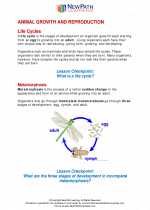Cephalosporins
Cephalosporins are a class of antibiotics that are used to treat a wide range of bacterial infections. They are structurally related to penicillin and share some similarities in their antibacterial activity. Cephalosporins work by inhibiting the synthesis of the bacterial cell wall, leading to the death of the bacterial cells.
Study Guide
- What are cephalosporins?
- How do cephalosporins work?
- What are some common uses of cephalosporins?
- What are the different generations of cephalosporins?
- What are the potential side effects of cephalosporins?
Cephalosporins are a class of antibiotics used to treat bacterial infections.
Cephalosporins work by inhibiting the synthesis of the bacterial cell wall, leading to the death of the bacterial cells.
Cephalosporins are used to treat a wide range of bacterial infections, including respiratory tract infections, skin and soft tissue infections, urinary tract infections, and more.
Cephalosporins are classified into four generations, each with increasing activity against a broader spectrum of bacteria. First-generation cephalosporins are more effective against gram-positive bacteria, while later generations have increased activity against gram-negative bacteria.
Common side effects of cephalosporins include diarrhea, nausea, and allergic reactions. It's important to consult a healthcare professional if any adverse reactions occur.
◂Science Worksheets and Study Guides Fourth Grade. Animal Growth and Reproduction

 Activity Lesson
Activity Lesson
 Worksheet/Answer key
Worksheet/Answer key
 Worksheet/Answer key
Worksheet/Answer key
 Worksheet/Answer key
Worksheet/Answer key
 Worksheet/Answer key
Worksheet/Answer key
 Vocabulary/Answer key
Vocabulary/Answer key
 Vocabulary/Answer key
Vocabulary/Answer key
 Vocabulary/Answer key
Vocabulary/Answer key
 Vocabulary/Answer key
Vocabulary/Answer key
 Vocabulary/Answer key
Vocabulary/Answer key
